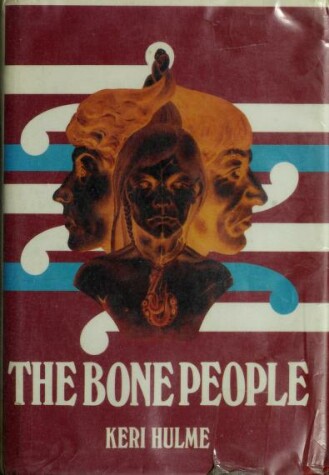Reviewed by nannah on
And yeah, that's important, if you've read this book.
Book content warnings:
abuse
child abuse
homophobic slurs
alcoholism
So if you look at the book's page, The Bone People has a rating of over four stars, which is pretty darn good on goodreads. Reviews sing its praises, etc. etc., and I just . . . can't relate.
My problem with this beautifully-written book? You guessed it! The abuse!!
I just can't get past it.
I don't know a thing about Keri Hulme's background, but unless she's faced a similar issue, her coverage of child abuse is so damn distasteful. It's like a slap in the face to all abused people who read this. Let me tell you why:
The book centers around three well-written, completely-rounded out and fully-fleshed beautiful characters: Kerewin, a rich ex-artist who's holed herself up in a self-built tower and prefers to be alone and lonely; Joe, a Maori man with a drinking problem and an equal spread of temper and charm; and his foster child Haimona (Simon), who's mute and probably one of the best characters I've read in a long time (also the reason this is 2 stars instead of 1).
So, mostly when he drinks, Joe beats Haimona, or finds a reason to beat him. And Haimona is repeatedly labeled as a "difficult" and "troubled" child. He runs away from school, steals things, sometimes breaks property, etc. And even when it's brought to Joe's attention that he does these things because he wants attention (even if it's the wrong kind of attention!), Joe continues to tell Haimona that he's a bad, BAD kid.
It's like a self-fulfilling prophecy: the kid is told so often he's BAD, that he'd begin to believe it and continue to act out. Is it not obvious to any of the characters?? (or to the writer?)
But anyway, Haimona continues to do things in his own way to communicate with the adults, and they continue to lash out at him in the worst way, and the worst thing is the book continues to say it's O K ?? Because they still somehow love him?
In one part, Joe tells Kerewin that it's okay, because "it's not like I'm beating Haimona, I'm beating the 'badness' out of him!" like W T F!? It's the most abusive thing I've ever heard in my life. And stuff I've heard personally. You are still literally beating your child. The things you tell yourself while you're doing it to reassure yourself literally doesn't matter at all, okay? It's not about how you feel while you're doing it. Literally. It's about your child.
And then in the middle-ish part of the book, Joe beats Haimona viciously enough that Haimona is hospitalized and almost dies. His head is bashed in on a door frame, and he risks permanent head trauma. Like what the fuck, I'm sorry, but really.
You know what the book does afterward? The book goes on to talk about how baaaaad the poor abuser feels, oh waah. I couldn't care less about how Joe feels after hurting his foster son, I honestly couldn't. At this point, it honestly feels like this book was written to make people feel sorry for child abusers. Like the author said "how NOVEL would it be if I wrote a book from a child abuses point of view and made people sympathetic to their pain?" HA HA. Listen, if you beat your child up, it's never, ever, EVER the child's fault.
It took me 26 years to learn this. And I'm finally standing up for myself. I'm finally distancing myself from my abuser and learning to say no and cutting him out of my life. And for this book to be sympathetic for the abuser and say the child is better off with the abuser after all is just disgusting. I'm sorry.
I love Kerewin and Haimona as characters, but the book is nasty.
Nasty.
Reading updates
- Started reading
- 11 December, 2016: Finished reading
- 11 December, 2016: Reviewed
